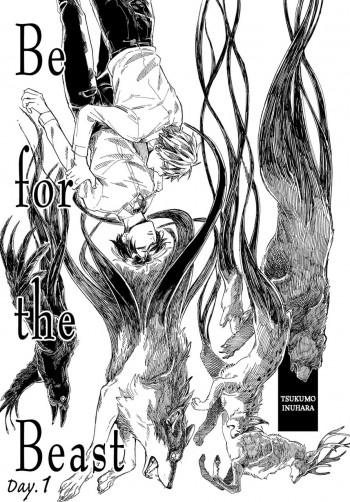Summary

Darkest Hour (Cutler 5)
by V.C. Andrews
Lillian's world is as thrilling as the fairy tales Mama spins for her and her little sister, Eugenia. No one, not even her cold, stern Papa and her Bible spouting sister Emily, can crush her spirits — until the day Emily reveals the shattering secret at Lillian's birth. Still Lillian refuses to believe Emily's hateful claim that she is evil, a curse.
But when tragedy befalls her best friend Lillian comes to believe Emily's grim words. Meekly, she endures her penance, finding a strange solace in the endless repetition of prayers. Then Papa loses The Meadows in a card game, and Lillian is faced with a new and terrifying prospect. Arrogant, handsome playboy Bill Cutler will return the plantation if Lillian will marry him...
.
Read
Darkest Hour (Cutler 5) on http://kissnovel.net
Martial Peak Reviews
Darkest Hour, the fifth installment in V.C. Andrews' Cutler series, continues the author's tradition of weaving intricate tales filled with family secrets, emotional turmoil, and the quest for identity. Set against the backdrop of a Southern plantation, the novel explores themes of love, betrayal, and the struggle for self-acceptance, all while maintaining Andrews' signature gothic atmosphere that captivates readers from the first page.
The story revolves around Lillian, a young girl whose life is steeped in the fairy tales spun by her mother. These tales provide a stark contrast to her reality, where her stern father and pious sister, Emily, impose a rigid moral framework that Lillian finds suffocating. The initial chapters are filled with a sense of innocence and wonder, as Lillian navigates her childhood with a spirit that remains unbroken despite the oppressive environment. However, this innocence is shattered when Emily reveals a dark secret about Lillian's birth, branding her as "evil" and a "curse." This revelation serves as a pivotal moment in the narrative, marking the transition from childhood naivety to a more complex understanding of her identity.
Andrews excels at character development, and Lillian is no exception. As the story unfolds, readers witness her transformation from a carefree girl to a young woman burdened by guilt and self-doubt. The tragedy that befalls her best friend acts as a catalyst for Lillian's internal struggle, forcing her to confront the implications of Emily's cruel words. The author skillfully portrays Lillian's descent into a state of penance, where she seeks solace in prayer, reflecting the deep psychological impact of familial expectations and societal norms. This exploration of guilt and redemption is a recurring theme in Andrews' work, reminiscent of the struggles faced by characters in her earlier novels, such as Flowers in the Attic.
The introduction of Bill Cutler, the arrogant and handsome playboy, adds another layer of complexity to Lillian's journey. His proposition to marry her in exchange for the return of the family plantation introduces themes of power dynamics and the commodification of relationships. Lillian's internal conflict regarding this arrangement highlights her struggle for autonomy in a world where her worth is often measured by her ability to conform to the desires of others. The tension between her longing for freedom and the oppressive weight of her family's expectations creates a compelling narrative that keeps readers engaged.
One of the most striking aspects of Darkest Hour is Andrews' ability to evoke a strong sense of place. The setting of The Meadows, with its lush landscapes and haunting beauty, serves as a character in its own right. The plantation symbolizes both heritage and entrapment, reflecting Lillian's own struggles with her identity. Andrews' vivid descriptions transport readers to this world, allowing them to feel the weight of history and the burden of familial legacies. This attention to detail enhances the emotional resonance of the story, making Lillian's journey all the more poignant.
The novel also delves into the complexities of sisterhood, particularly the toxic dynamics between Lillian and Emily. Emily's role as the pious enforcer of their father's will creates a palpable tension that drives much of the plot. The contrast between Lillian's vibrant spirit and Emily's coldness serves to highlight the different ways women navigate societal expectations. This theme of female rivalry and the quest for approval is reminiscent of other works by Andrews, where sisterly relationships often become battlegrounds for power and control.
As the narrative progresses, Lillian's journey toward self-acceptance becomes increasingly compelling. Her struggle to reconcile her identity with the labels imposed upon her by her family and society is a universal theme that resonates with readers. Andrews masterfully captures the essence of this struggle, making Lillian a relatable and sympathetic character. The emotional depth of her journey is further enhanced by the supporting cast, each of whom adds layers to the central conflict and enriches the overall narrative.
In conclusion, Darkest Hour is a powerful exploration of identity, guilt, and the quest for autonomy within the confines of family and societal expectations. V.C. Andrews' ability to create complex characters and evoke a rich sense of place makes this novel a compelling read. The themes of love, betrayal, and the search for self-acceptance are timeless, ensuring that Lillian's story will resonate with readers long after they turn the final page. For fans of Andrews and those who appreciate gothic family sagas, Darkest Hour is a must-read that will leave a lasting impact.
























Reviews 0
Post a Reviews: